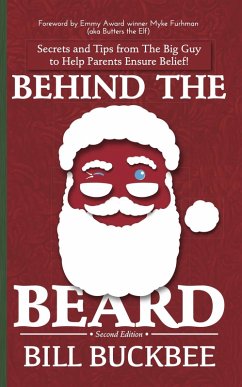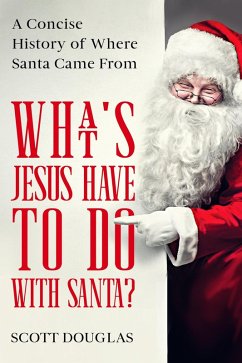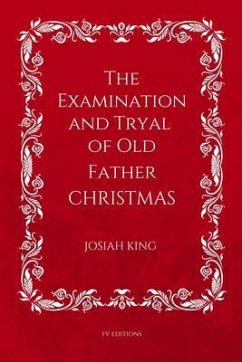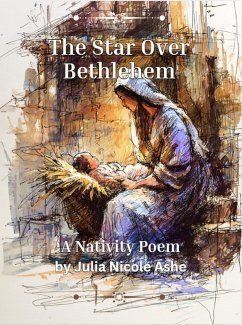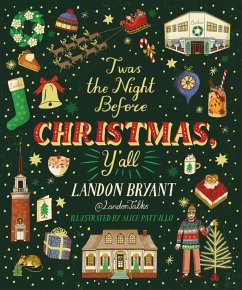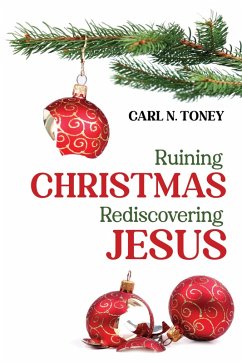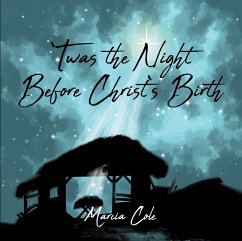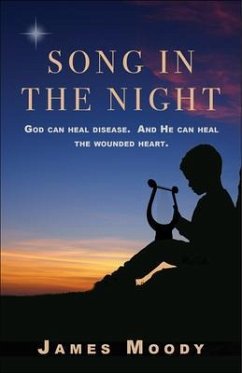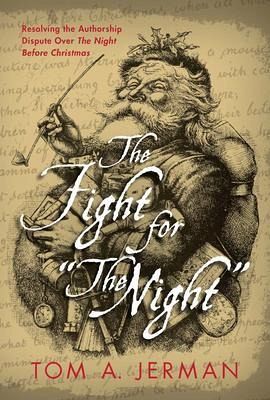
The Fight for "The Night" (eBook, ePUB)
Resolving the Authorship Dispute over "The Night Before Christmas"

PAYBACK Punkte
4 °P sammeln!
Who Wrote "The Night Before Christmas"?In The Fight for "The Night": Resolving the Authorship Dispute Over "The Night Before Christmas," author Tom A. Jerman addresses a challenge first voiced by descendants of a Poughkeepsie farmer, Henry Livingston Jr., and later articulated by Vassar English professor Don Foster to the long-standing attribution of "The Night Before Christmas" to New York seminary professor Clement C. Moore.· Livingston never claimed authorship, nor did any of the children who supposedly heard him recite the poem in 1808 ever say so. Moore published the poem under his name ...
Who Wrote "The Night Before Christmas"?
In The Fight for "The Night": Resolving the Authorship Dispute Over "The Night Before Christmas," author Tom A. Jerman addresses a challenge first voiced by descendants of a Poughkeepsie farmer, Henry Livingston Jr., and later articulated by Vassar English professor Don Foster to the long-standing attribution of "The Night Before Christmas" to New York seminary professor Clement C. Moore.
· Livingston never claimed authorship, nor did any of the children who supposedly heard him recite the poem in 1808 ever say so. Moore published the poem under his name in 1836 and consistently claimed authorship until his death in 1862.
· The Livingston descendants did not claim authorship for well over a century after the poem was allegedly written.
· Livingston's religion, Dutch Reformed, prohibited celebration of Christmas or veneration of saints whereas Moore, a devout Episcopalian, celebrated in traditional English style and treated St. Nicholas as the Christmas gift-giver.
· Foster's claim that Moore was too much of a curmudgeon to have written a lively children's poem is based on a number of demonstrably false personal attacks and ignores the lively poems he did write.
· Livingston did not consistently write and publish poetry between 1770 and 1826, as Foster claims. Rather, virtually all of his forty-two poems were written between 1783 and 1793.
· Foster ignores the numerous comments from Moore's contemporaries that he was "the best of men."
The Story Behind The Fight for "The Night"
On December 23, 1823, a small-town newspaper in Troy, N.Y., published an anonymous poem, originally titled "An account of a Visit from St. Nicholas," about a Christmas gift-giver who traveled on a sleigh pulled by a flying reindeer. In 1836, a distinguished, wealthy, seminary professor named Clement C. Moore acknowledged that he was the author of the poem, and his authorship was generally acknowledged for two centuries.
As the popularity of the poem grew, it had a dramatic effect on the celebration of Christmas in America, establishing both the appearance and practices of the American gift-giver and helping to replace the drunken, Mardi Gras-style street parties on Christmas Eve with family-friendly celebrations on Christmas morning.
Moore's authorship of the poem remained virtually unchallenged until 2000, when Don Foster, a Vasar English professor and self-proclaimed "literary detective," wrote a book, Author Unknown, in which he challenged Moore's authorship in favor of a Poughkeepsie farmer, Henry Livingston Jr., who purportedly read the poem to his children on Christmas morning in 1808.
In "The Fight for 'The Night,'" author Tom A. Jerman's second book on the history of Santa Claus, Jerman carefully refutes Foster's claim, citing historical, biographical, stylistic and stylometric evidence that Moore wrote the poem and Livingston did not.
In The Fight for "The Night": Resolving the Authorship Dispute Over "The Night Before Christmas," author Tom A. Jerman addresses a challenge first voiced by descendants of a Poughkeepsie farmer, Henry Livingston Jr., and later articulated by Vassar English professor Don Foster to the long-standing attribution of "The Night Before Christmas" to New York seminary professor Clement C. Moore.
· Livingston never claimed authorship, nor did any of the children who supposedly heard him recite the poem in 1808 ever say so. Moore published the poem under his name in 1836 and consistently claimed authorship until his death in 1862.
· The Livingston descendants did not claim authorship for well over a century after the poem was allegedly written.
· Livingston's religion, Dutch Reformed, prohibited celebration of Christmas or veneration of saints whereas Moore, a devout Episcopalian, celebrated in traditional English style and treated St. Nicholas as the Christmas gift-giver.
· Foster's claim that Moore was too much of a curmudgeon to have written a lively children's poem is based on a number of demonstrably false personal attacks and ignores the lively poems he did write.
· Livingston did not consistently write and publish poetry between 1770 and 1826, as Foster claims. Rather, virtually all of his forty-two poems were written between 1783 and 1793.
· Foster ignores the numerous comments from Moore's contemporaries that he was "the best of men."
The Story Behind The Fight for "The Night"
On December 23, 1823, a small-town newspaper in Troy, N.Y., published an anonymous poem, originally titled "An account of a Visit from St. Nicholas," about a Christmas gift-giver who traveled on a sleigh pulled by a flying reindeer. In 1836, a distinguished, wealthy, seminary professor named Clement C. Moore acknowledged that he was the author of the poem, and his authorship was generally acknowledged for two centuries.
As the popularity of the poem grew, it had a dramatic effect on the celebration of Christmas in America, establishing both the appearance and practices of the American gift-giver and helping to replace the drunken, Mardi Gras-style street parties on Christmas Eve with family-friendly celebrations on Christmas morning.
Moore's authorship of the poem remained virtually unchallenged until 2000, when Don Foster, a Vasar English professor and self-proclaimed "literary detective," wrote a book, Author Unknown, in which he challenged Moore's authorship in favor of a Poughkeepsie farmer, Henry Livingston Jr., who purportedly read the poem to his children on Christmas morning in 1808.
In "The Fight for 'The Night,'" author Tom A. Jerman's second book on the history of Santa Claus, Jerman carefully refutes Foster's claim, citing historical, biographical, stylistic and stylometric evidence that Moore wrote the poem and Livingston did not.
Dieser Download kann aus rechtlichen Gründen nur mit Rechnungsadresse in A, D ausgeliefert werden.




